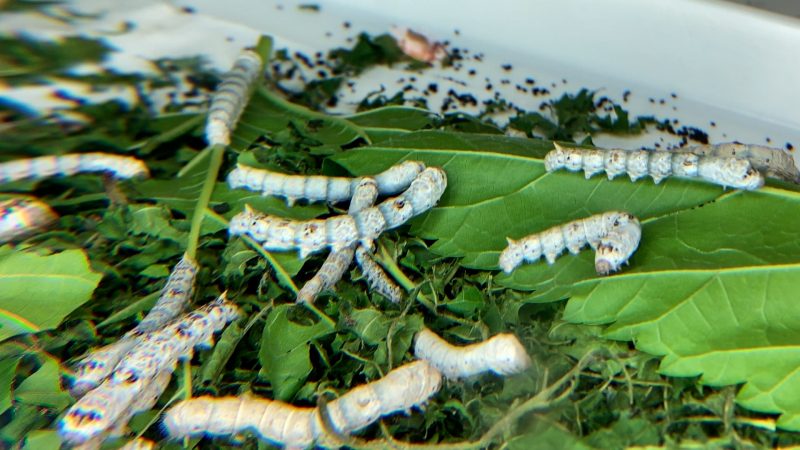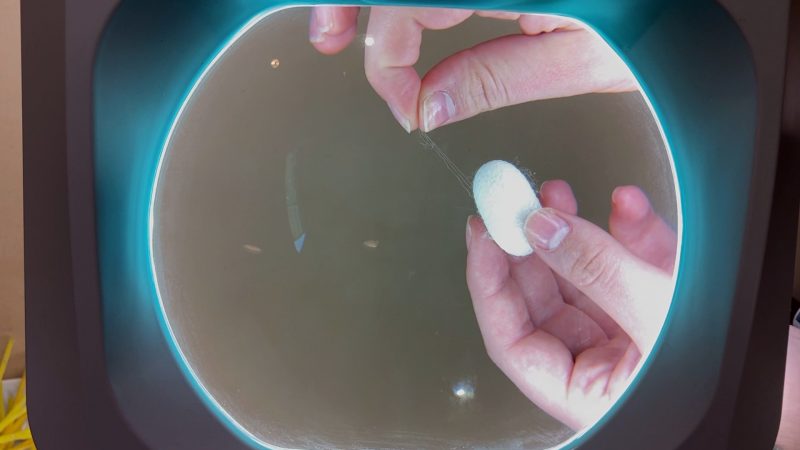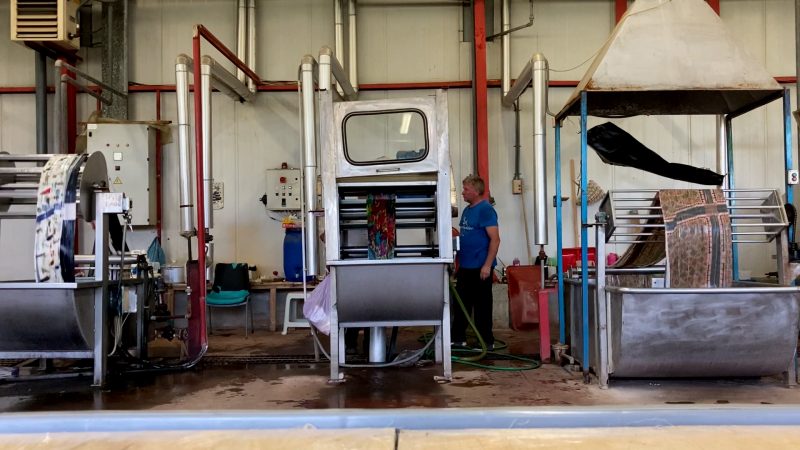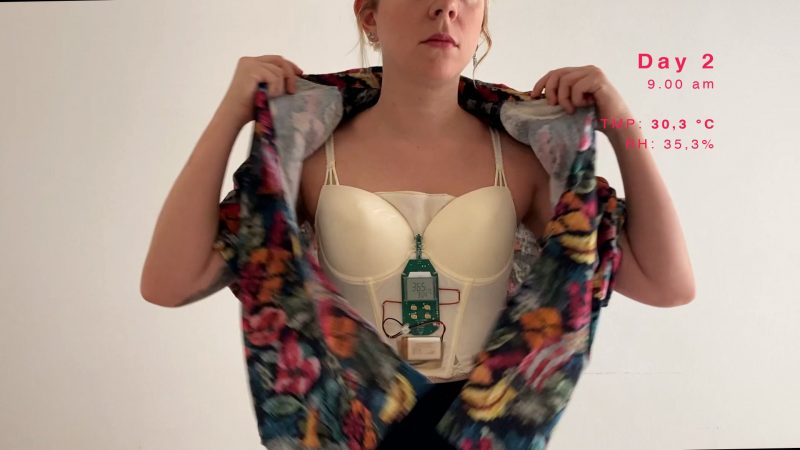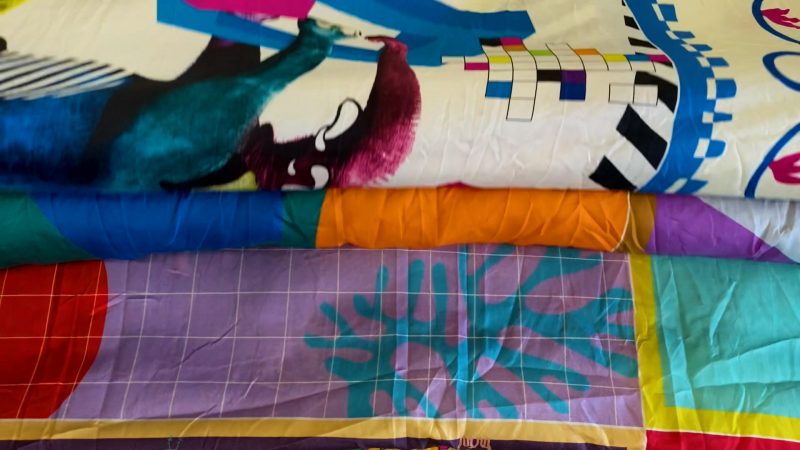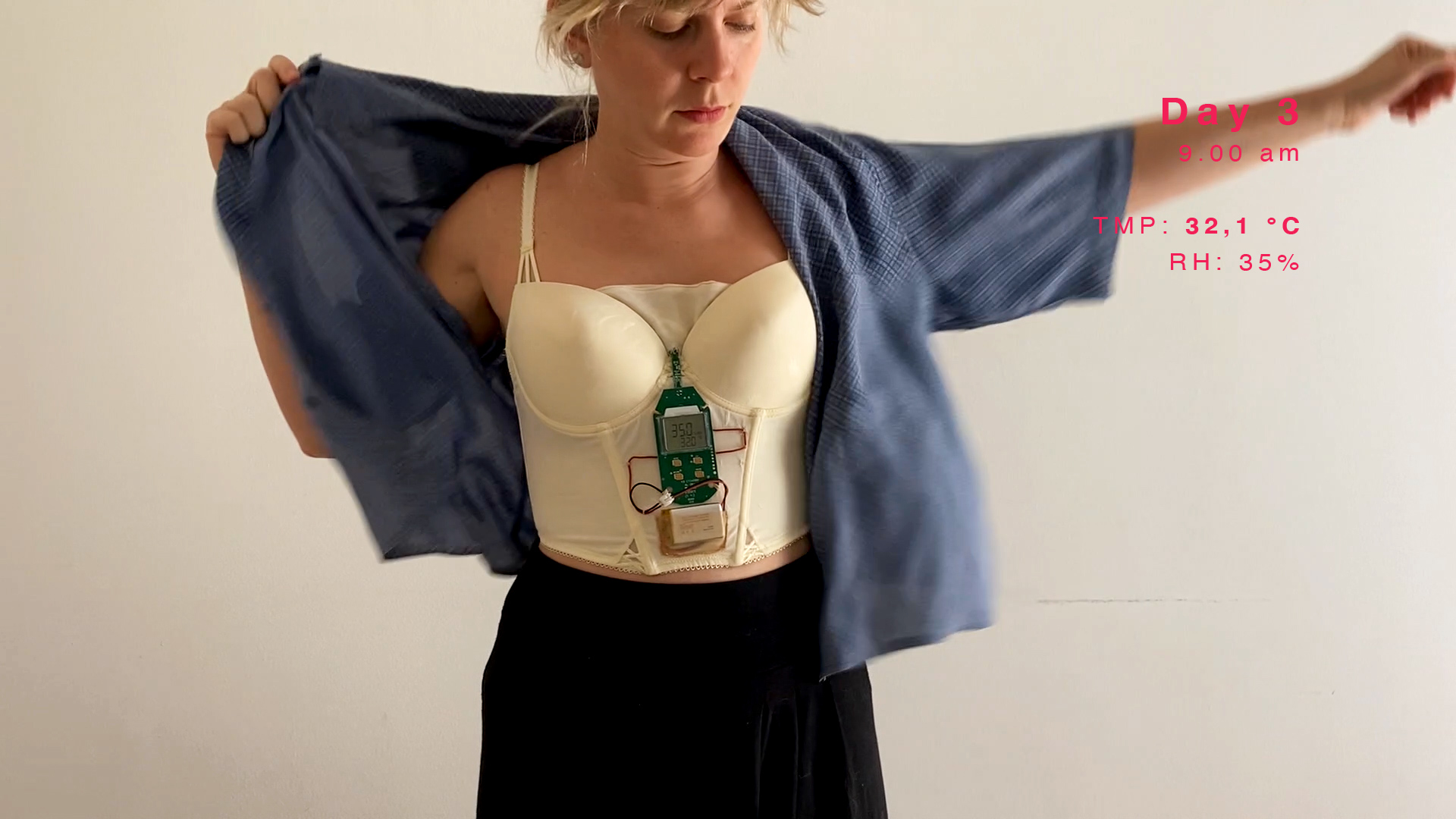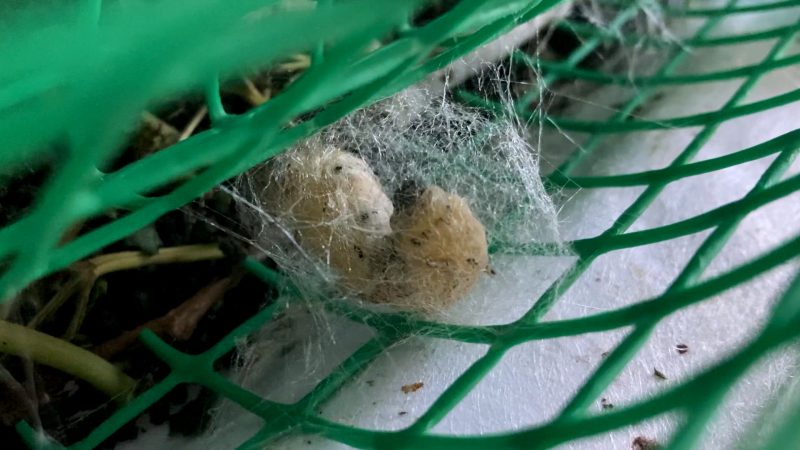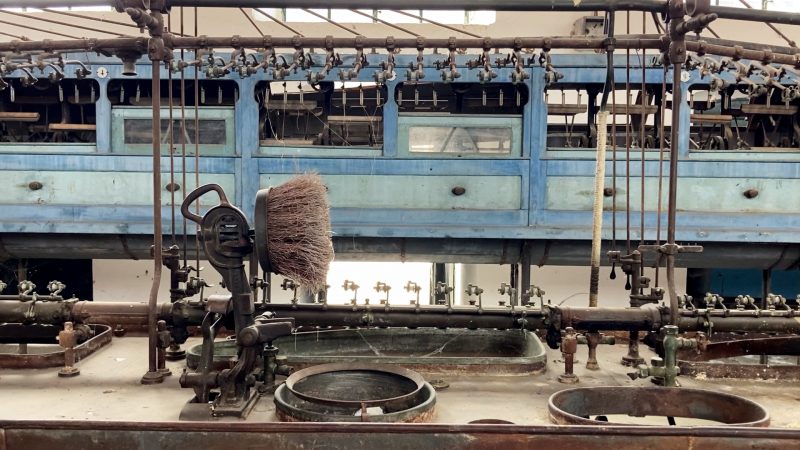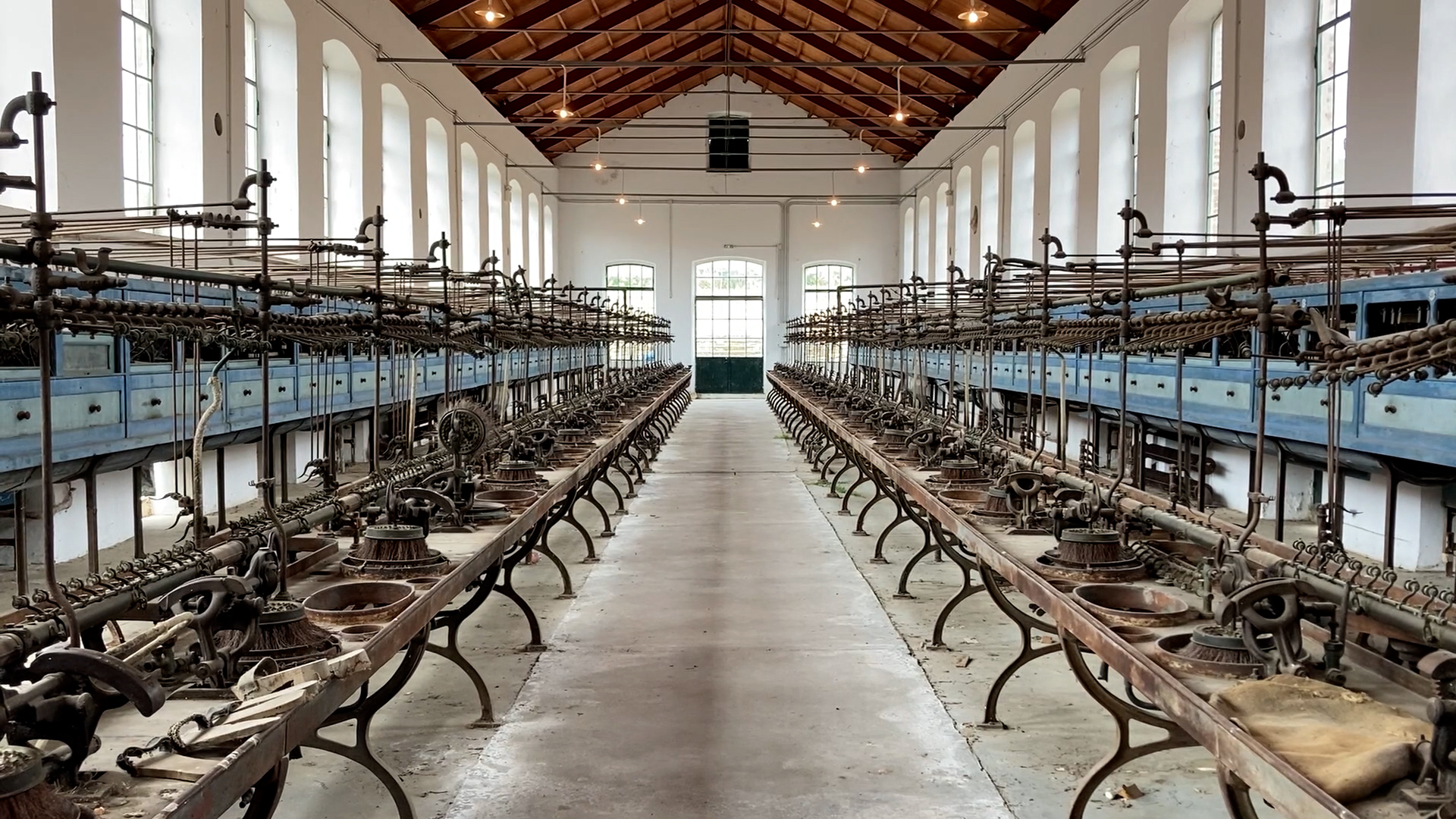kórfos
kórfos: chest as a place to embrace someone
Since the 17th century, Europe’s major silk production centers established an international division of labor, shaping the globalized silk economy. In Greece, silkworm farming and cocoon reeling became key rural activities, with the town of Soufli at the forefront. These tasks were exclusively performed by women, whose relationship with the silkworms was deeply symbiotic. Before incubators were introduced, women would hatch silkworm eggs using the natural warmth of their bodies, holding the eggs close to their bosoms.
The artist revives this traditional incubation method in a video performance, treating it as a pseudo-scientific experiment. She divided the silkworm eggs into three groups of 100 each. The first group was placed in an incubator set to a constant temperature of 36.6°C at the Agricultural University of Athens. The second group was placed in a small box and left to develop at room temperature without any intervention. The third group was placed on her bosom. The goal is to observe and document which of the three conditions is most favorable for hatching.
Silkworm eggs are hatched on her body while oral testimonies of Soufli women who experienced domestic silkworm rearing, along with accounts from the last surviving women silk workers, are played. These stories are accompanied by visuals of silk production, past and present.
The symbiotic connection between women and silkworms unfolds as a narrative of gendered production systems, offering a “herstory” of material culture.
Interviews
Angeliki Giannakidou – Founder and President of the Ethnological Museum of Thrace
Matoula Demertzi – resident of Soufli
Pagona Manavi – contemporary sericulturer of Soufli
Pepi Mourica – silk worker of the Tzivre factory
Matina Lekka – member of the Chryssallida club
Kula Tsiaduka – silk worker of the Tzivre factory
The work was commissioned by Polygreen Culture & Art Initiative.
dimensions
00.33.15 min
exhibition
Sheltered Gardens
curator
Kika Kyriakakou
year
2022
acknowledgements
Giorgos Goras, Giorgos Tsiakiris, Christina Sotirakou, Thanos Eleftherakos, Athina Pavlou Benazi, Dimitra Bouriliti, Michalis Konstantatos
